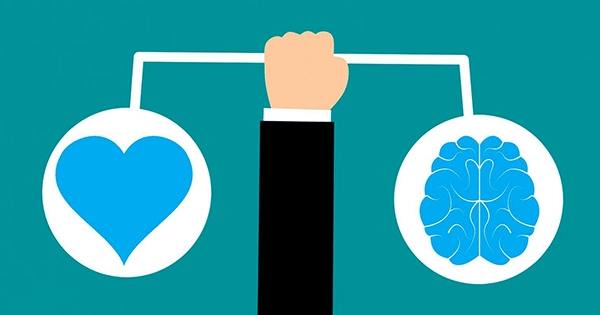We frequently associate the word “intelligence” with figures like Sherlock Holmes. He’s analytical and sensible, not always excellent with people, but gosh darn it if he can’t crack killer sudoku in record time, and that’s what matters most in life.
But there are other ways we can be intelligent besides that. According to some, the ability to identify, manage, and analyze your own emotions as well as those of others is emotional intelligence, making it a more significant life skill. Improved leadership abilities, commercial and entrepreneurial success, better educational outcomes, a decreased susceptibility to bogus news, and, of course, just generally getting along with people have all been related to it.
We’ve already discussed the basic meaning of emotional intelligence, which is “the capacity to recognize and control one’s own and other people’s emotions,” according to the author and psychiatrist Neel Burton in a 2016 blog post for Psychology Today.
But such straightforward justification obscures a nuanced reality. In many situations, it might be challenging to identify an emotion or emotional experience, let alone fully comprehend it, according to Burton.
Because of this, researchers have usually divided the skill into four distinct categories: emotional perception, the capacity to use emotions to reason, the comprehension of emotions, and the capacity to control emotions.
In other words, an emotionally intelligent person is able to recognize emotions, use those emotions to guide decisions and actions, understand and interpret the meaning behind emotions, and regulate and manage them. This recognition of emotions can occur through non-verbal cues such as body language and facial expressions in others, or simply by being aware of one’s own emotional state.
Do you possess emotional intelligence? Let’s do a thinking experiment. Imagine your housemate storms into the kitchen one evening after returning late from work and begins yelling violently that you haven’t taken out the trash. What’s your response?
Do you become defensive, unable to comprehend how a full trash can could have sparked such rage? If so, your emotional intelligence is likely lower. Alternatively, you might suspect that your flatmate was having a rough day and that seeing that garbage can in the kitchen was the final straw. After you swallow your irritation at being yelled at and take out the trash, you could offer to pour them a cup of tea and suggest a venting session.
That is the more emotionally intelligent response: recognizing the emotion, determining its root cause and potential remedies, controlling your own emotions, and comprehending those of others.
Just as there is no single test that may demonstrate academic intelligence, there is no checklist of precise characteristics that define “emotionally intelligent.” However, in addition to the characteristics already mentioned, there are other telltale markers of strong emotional intelligence. People that possess emotional intelligence are also sympathetic and sensitive, interested in other people, self-conscious, and aware of their own strengths and weaknesses.
Other indications that you may possess high emotional intelligence are your capacity to learn from your errors and to accept responsibility and criticism without becoming defensive or upset. It’s likely that you’re also emotionally intelligent if someone has ever called you a “wonderful listener,” they’ve seen you cry during a tearjerker, or they always come to you for advice.
Maybe when you read it, you realized, “Wahey! That’s me!” Then congratulations; if not, don’t panic. According to psychosocial rehabilitation specialist and author Kendra Cherry in an essay for VeryWell Mind, “contrary to conventional opinion, you can gain emotional intelligence.” Emotional intelligence can be strengthened by both children and adults.
Studies have suggested methods like transcendental meditation and augmented reality games as ways to boost emotional intelligence, and entire training programs have been created with that goal in mind.
However, if it seems a little too difficult, there are more straightforward ways to advance. In order to improve emotional intelligence, the American Academy of Family Physicians outlined a number of strategies in 2018. These included “clarifying your objective” for the day, engaging in self-care, and developing morning and evening rituals.
These strategies are echoes of advice from other professionals. If you don’t already recognize your emotions, periodically assess your feelings consciously. Asking yourself “How do I feel?” during the day and describing both the physical response (such as “My shoulders feel tight”) and the emotional response (such as “I feel anxious”) are advised, according to the AAFP. Then, reflect on the cause of your feelings.
Be curious about the environment around you, whether it’s to get insight into another person’s viewpoint or just to learn how to read a room. Try to establish and sustain relationships, even if it necessitates making excuses and displaying vulnerability.
This may not be simple, but it will be worthwhile. The AAFP says, “Making time for those around you can feel like an impossible effort.” However, “you are developing a coalition of individuals primed to help you, give you the benefit of the doubt, and work hard on your behalf with every sincere greeting or interaction with someone on your team.”
Fact-checkers have verified the accuracy of every “explainer” article at the time of publication. To maintain the information up to date, text, pictures, and links may be modified, removed, or added at a later time.















